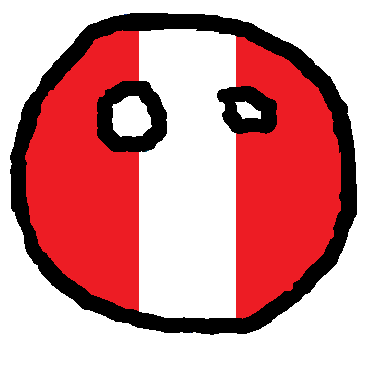Anybody here ever looked into DValdron's
Axis of Andes?
It actually started out in Post-1900, but due to a tiny technicality which I was responsible for pointing out (when I nominated it for a Turtledove) the mods moved it to pre-1900--there's this guy born before 1900, you see, and when he was young he made a firmer decision than OTL to commit to Ecuadorian citizenship and patriotism, dramatized by a moment in his young life--which happened to be pre-1900 you see. Never mind that all events in the plot
of any significance happen in the 1930s and 40s and it's essentially a World War II ATL!


The story is supposed to be about Ecuador mainly, but the outcome is a revolutionary Peru, revived Inca kingdom in the ideology of the uprising that sweeps the entire Altiplano and absorbs vast sweeps of neighboring (mostly highland) South American countries into the Peru-centered empire. An empire that is, in a vague way, kind of sort of Marxist and enjoys a bit of championship from Stalin (this happens toward the end of WWII) and which the USA is unable to dislodge.
So, that Greater Peru has little projection capability in the sense of sending air craft carrier task forces to face down the USN or RN; nor does it have the industrial mass of the USSR enabling it to be a major exporter of weapons and thus attempt to assemble a bloc of allies via patronage (something the Soviets only ever had any success with when the regimes they offered their largesse of munitions to were also Leninist in ideology anyway--Cuba, Vietnam, yes, but not Egypt or India).
But already in the 1940s they are in a position not unlike Maoist PRC in the 1950s--they can't propose to send ships, tanks or missiles to face down the Yanks, but they export a lot of do-it-yourself revolutionary ideology, and might, after a couple decades of internal development, operate like a more gigantic Cuba, sending out volunteer brigades to either friendly governments or to insurgencies strong enough to hold some territory pretty securely, to do medicine, teaching, and engineering--all of them also armed to defend themselves of course, and serving as cadres of the revolutionary movement and hoping to mentor more of the same overseas by this means.
Obviously the more of this kind of "meddling" the Inkan Empire does, the more irate the USA would be, but I think DValdron was realistic enough in arguing that transformations that empower the various Altiplano Indians of the Andes and forge them into a unified, concerted political movement on their own behalf would result in a large enough body of people located in difficult terrain that they own and outsiders would have difficulty operating in undetected--the conflict would be asymmetrical but some of the asymmetry is against the Yanquis! So they can go on exporting revolutionary inspiration, in the form of substantial numbers of their people doing this sort of armed Peace Corps sort of thing.
Here's a link to the map of South America at the conclusion of the Andes War, which initially started out as aggression by the (criollo, not Indio at all) Peruvian government (or rather a faction of its ruling junta) against Ecuador, in which the Ecuadorian forces (having been deviated from OTL by developments in the 1930s) kicked the Peruvian army over hill and dale; were it not for US disdain for the Ecuadorian regime (based on ill-advised overtures to Mussolini and Hitler for support, detailed in the OP of the thread) Ecuador would surely have been counted the victor and a settlement favoring them worked out...instead the war drags on long enough to spread to a knock-down fight between Chile and Peru, schemes by both sides and third parties to get control of Bolivia--and in the course of all this, the Peruvian regime begins recruiting (often, simply sweeping up in press gangs) Andean Indio peoples who OTL were left largely alone, or anyway exploited only by traditional means--but here, they are sent to WWI-style trenches on the Chilean front, or mismanaged by politically hamstrung Criollo Peruvian officers who don't understand their languages let alone sympathize with them, and so gradually the Indios are organized by being in the Army with their clueless Criollo superior officers being killed off or yanked away in coup and counter-coup and some of their number wind up being promoted to junior positions of command by sheer necessity; this is the core and basis of the new Inkan movement--a desperate rabble in arms who decide to use the arms for their own purposes rather than the vain ones of their Criollo alleged social betters.
I think maybe it is best to
let the thread author say for himself just how the timeline sets up a Greater Peru that can be construed as meeting this thread's OP challenge, if we interpret it in the "soft" way that Cuba under Soviet patronage or the modern PRC projected power, literally globally.
